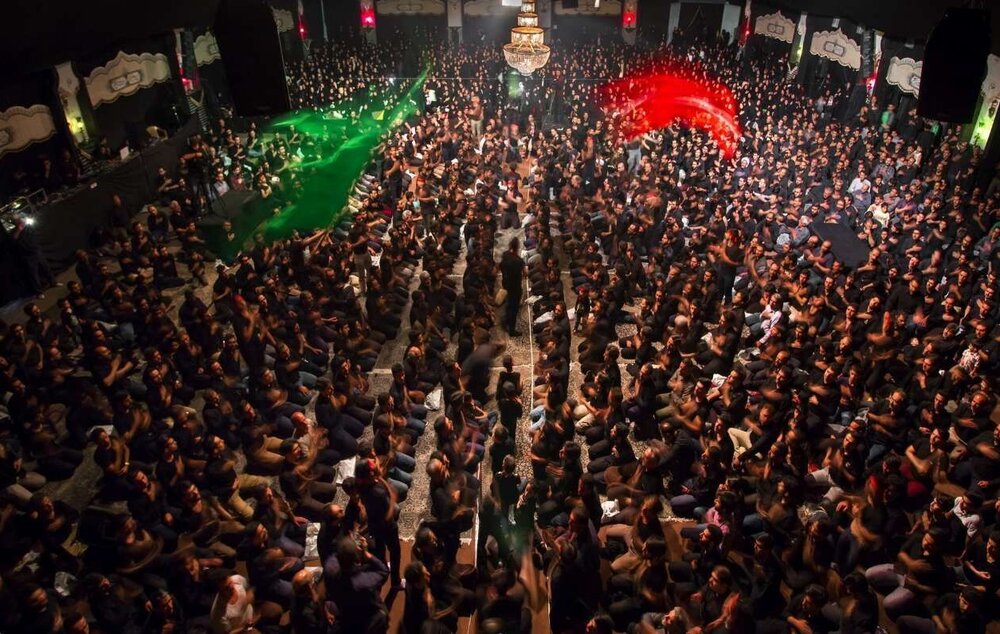TEHRAN - As the U.S. requested a return of all UN sanctions on Iran, the Iranian people made preparations for commemorating the anniversary of the martyrdom of Imam Hussein (AS), the grandson of the Prophet Muhammad (PBUH) who was martyred in the Battle of Karbala on October 10, 680 (Muharram 10, 61 AH).
The Imam’s martyrdom has long been a source of inspiration for Muslims around the world through the centuries. They see him as a hero who sacrificed himself and his family to stand up against oppression.
Imam Hussein (AS) was born in Medina in January 626 to a family of modest means. However, his piety and righteousness earned him widespread popularity among Muslims from all walks of life, which along with his status as the progeny of the Prophet, made him a target for the Umayyad Caliphate.
Mu'awiya ibn Abi Sufyan, the founder and first caliph of the Umayyad Caliphate, sought to pressure the Imam into paying allegiance to his son, Yazid, as he touted him as the next caliph of the Umayyad Caliphate. But the Imam refused to offer allegiance to Yazid, who was known for his dissoluteness. When Yazid came to power in 680, Imam Hussein was still refusing to offer allegiance and traveled to Mecca in a bid to stay away from the Caliph’s mounting pressures. In Mecca, he was approached by the people of Kufa, who were longing for the overthrow of the Umayyad Caliphate. They urged Imam Hussein to overthrow the caliphate. The Imam went to Kufa only to realize that the people of Kufa have reneged on their promise of help. Eventually, the army of the caliphate, led by Omar ibn Sa’ad, intercepted the Imam’s caravan in the plain of Karbala and martyred the Imam and his companions.
The Battle of Karbala had a deep influence on the Shiite Muslims. Every year, they hold mourning ceremonies to commemorate the martyrdom of Imam Hussein, who became a symbol for the fight against oppression and arrogance.
“Imam Hussain (AS) was a symbol of honor, and because he firmly withstood, he was also a symbol of dignity. This is the honor and dignity attributed to Imam Hussein. Some people might say something, but never stand for what they say and retreat; these people cannot take pride in what they say,” Leader of the Islamic Revolution Ayatollah Seyed Ali Khamenei said on March 29, 2002.
Imam Hussein’s resistance against Yazid also became a guiding principle for Iran in dealing with the U.S. Over the past five years, there have been calls for negotiating with the U.S. in line with what some of the Twelve Imams did with their enemies, especially Imam Hassan (AS), the brother of Imam Hussein who reached a peace deal with the father of Yazid, Mu'awiya ibn Abi Sufyan.
However, the Leader of the Revolution dismissed these calls as “utmost simplification”, saying what the Imams did wasn't equivalent to modern-day negotiations.
“These people say how is it that Imam Ali (AS) and Imam Hussein (AS) negotiated with their enemies, but now negotiating with the United States is prohibited?” wondered the Leader at an October 2015 meeting with the IRGC’s navy commanders.
“Such an analysis of the issues of Islamic history and the issues of the country is extremely simplistic because Imam Ali (AS) did not negotiate with Zubair and Imam Hussein did not negotiate (AS) with Omar ibn Sa'ad in the sense of today’s negotiation, which means making a bargain. They both admonished their enemies and advised them to fear God,” the Leader explained.
Calls for negotiations with the U.S. are based on the proposition that the White House really wants a negotiated solution to tensions between Iran and the U.S. This is while many experts believe that Donald Trump’s administration doesn’t want to solve the problems with Iran. Instead, it seeks Iran’s surrender, just as Yazid’s policy toward Imam Hussein (AS).
Iranian Foreign Minister Mohammad Javad offered several diplomatic initiatives to deescalate tensions between Tehran and Washington, including an offer to swap prisoners. However, the U.S. refused to alter its maximalist position on Iran, a move that contributed to the continuation of tensions between the two sides.
Now that Iran has refused to negotiate under the pressure of sanctions, the U.S. is making efforts to restore all UN sanctions on Iran, even though its allies and rivals alike say the U.S. has no legal authority to trigger the snapback process, a mechanism built into the 2015 Iran nuclear deal to allow the accord’s parties to restore the UN sanctions in case Iran fails to uphold its commitments under the deal.
In light of U.S. pressures, this year’s Muharram could once again inspire the Iranian people to withstand the U.S. pressures by following the lead of Imam Hussein (AS), who chose freedom over humiliation.


No comments:
Post a Comment